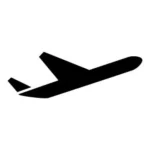Obtaining a pilot license is an exciting and potentially fulfilling endeavor. Whether you dream of flying for recreation or pursuing a career in aviation, understanding the licensing requirements is crucial. This comprehensive guide will provide you with all the essential information you need to navigate the path to becoming a licensed pilot.
**Types of Pilot Licenses**
There are several types of pilot licenses available, each with its own set of privileges and limitations. The most common types include:
* **Private Pilot License (PPL):** Allows you to fly small aircraft for personal or recreational purposes.
* **Commercial Pilot License (CPL):** Enables you to fly aircraft for compensation or hire.
* **Airline Transport Pilot License (ATPL):** Required for flying large commercial passenger or cargo aircraft.
**Requirements for Obtaining a Pilot License**
To qualify for a pilot license, you must meet certain requirements:
* **Age:** 17 years old (for a student pilot certificate) or 18 years old (for a private pilot license)
* **Medical:** Pass a medical exam conducted by an FAA-designated Aviation Medical Examiner (AME)
* **Education:** Complete a minimum number of flight training hours and pass written and practical exams
* **Background:** Undergo a background check
**Flight Training**
Flight training is a critical component of obtaining a pilot license. You will need to log a specific number of flight hours under the supervision of a certified flight instructor (CFI). The training typically covers subjects such as aircraft systems, navigation, meteorology, and emergency procedures.
**Written and Practical Exams**
Once you have completed the required flight training, you will need to pass written and practical exams administered by the Federal Aviation Administration (FAA). The written exam tests your knowledge of aviation theory, while the practical exam evaluates your flying skills and ability to handle emergencies.
**Medical Certification**
As a licensed pilot, you are required to maintain a valid medical certificate issued by the FAA. The medical certification ensures that you are medically fit to fly. The frequency of renewal varies depending on your license type and age.
**Ongoing Training and Currency**
To maintain your pilot license, you must complete recurrent training and proficiency checks at regular intervals. This is essential to ensure your continued safety and competency as a pilot.
**Conclusion**
Obtaining a pilot license is a significant achievement that requires dedication, preparation, and a passion for aviation. By understanding the licensing requirements, pursuing the necessary flight training, and maintaining your certifications, you can unlock the freedom and exhilaration of soaring through the skies. Whether you choose to fly for personal fulfillment or professional aspirations, a pilot license will empower you to experience the wonders of the aviation world.
